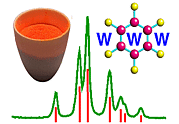 |
Hydrothermal Synthesis
I. Angle Dispersive |
 |
Hydrothermal Synthesis
I. Angle Dispersive |
Angle Dispersive
An example of angle-dispersive mode is evident in a significant body of work by
Norby and co-workers (e.g. Inorg. Chem 38, 1216 (1999)) in which X-ray
transmission has been achieved using just moderately hard X-rays
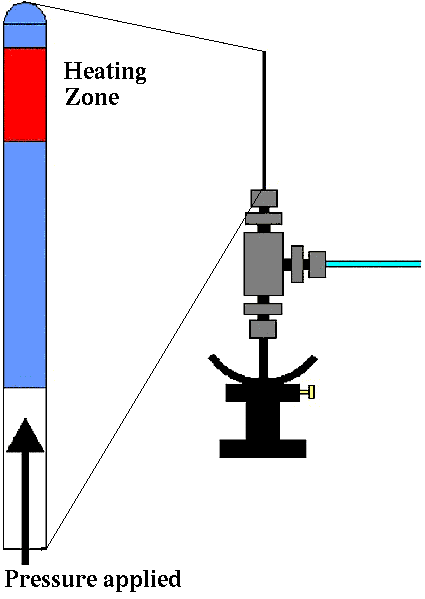
The time-sequence and time-resolution (≈1 minute) was obtained using a moving image plate detector with a defining slit to subtract a small part of the Debye-Scherrer powder diffraction rings; as the pattern (within this slit) changes with time it is recorded on the moving image plate as illustrated below:
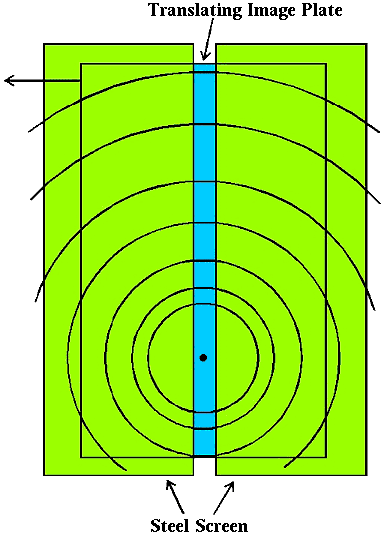
Two striking sequences obtained by this method for the synthesis of the micro-porous aluminophosphates, MnAPO-11 and CoAPO-11, and are shown in the accompanying diagram:
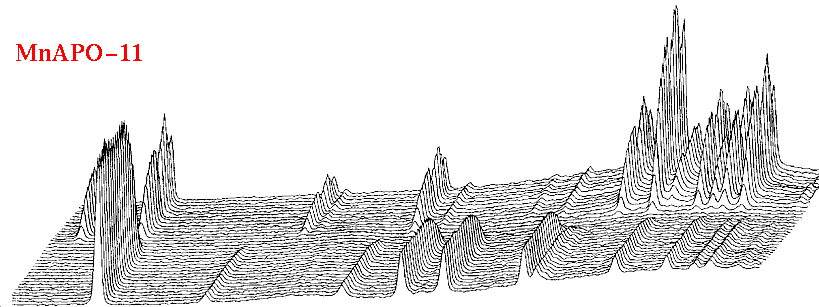 |
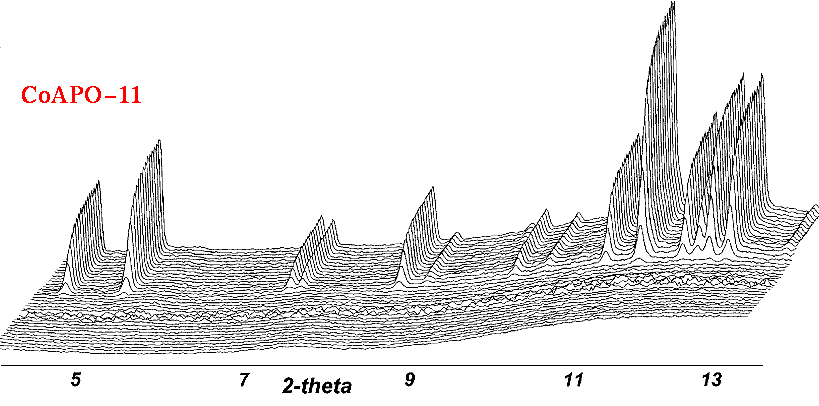 |
Immediately one sees that the first of the two syntheses involves an intermediate phase (something that would probably not have been realised from the old ex-situ "before and after" types of study). Further, the data quality are sufficient to fit rate equations for different temperatures and thereby determine activation energies for the overall synthesis process. The advantages of in-situ studies should already be very obvious from these studies.
|
© Copyright 1997-2006.
Birkbeck College, University of London.
|
Author(s):
Paul Barnes Simon Jacques Poul Norby Martin Vickers |